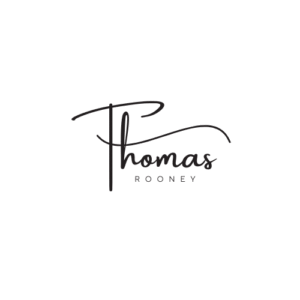Personal belief boundaries are becoming increasingly blurred in today’s interconnected world, where information is just a click away. With the proliferation of social media platforms, people have found new avenues to express themselves, whether about their latest vacation escapades or opinions on the day’s pressing issues. However, while sharing aspects of our lives has become second nature, it’s imperative to exercise discretion, especially regarding sensitive topics such as political preferences, religious affiliations, and sexual orientation. In particular, the workplace is an environment where oversharing can have unforeseen repercussions. Maintaining discretion can be a strategic move for your career security.
Understanding the Professional Context
The workplace serves as a microcosm of society, bringing together individuals from diverse backgrounds with their beliefs and values. While this diversity fosters innovation and mutual learning, it also introduces potential conflict. Expressing strong opinions about sensitive subjects can unintentionally create workplace tensions or influence superiors’ perceptions.
- Avoiding Unconscious Bias: Despite the best intentions, unconscious biases can shape decision-making in the workplace. Announcing your political stand might align or clash with managerial views, consciously or unconsciously influencing key promotions, assignments, or retention decisions. The same holds for religious affiliations or sexual orientation.
- Preserving Professional Relationships: Disclosing personal beliefs can build camaraderie with those who share similar views but can equally alienate others. Maintaining neutrality allows you to interact with colleagues without the undercurrents of political or religious divisions.
- Focusing on Meritocracy: Professional environments often claim to champion meritocracy. Keeping personal beliefs private allows your work and skills to be the focal point, ensuring that your achievements and contributions define your career progression.
The Digital Footprint Dilemma
In the digital age, what you share online can be as influential as what you say in person. Employers often screen potential hires on social media to gain insights into their character and values.
- Long-lasting Digital Imprint: Once posted, content online can last indefinitely, resurface, or be taken out of context later, potentially causing reputational harm. This includes declarations or discussions about personal beliefs.
- Safe Networking: Social media offers countless networking opportunities; however, it can also expose you to judgment by prospective employers or clients based on your personal views. Safeguarding your digital presence ensures that professional relationships are formed based on skills and competencies rather than personal ideology.
Striving for Inclusivity
As conversations about inclusivity become more prevalent, it doesn’t negate the fact that biases and prejudices remain systemic issues.
- Political Preferences: Political discussions can become intense and polarizing, altering workplace dynamics. Remaining apolitical in the workplace prevents potential isolation or discrimination based on perceived political affiliations.
- Religious Affiliation: While workplaces are meant to respect all spiritual practices, discussing religion openly may inadvertently lead to othering or isolation by colleagues who do not share the same views or practices.
- Sexual Orientation: While inclusivity and diversity initiatives are making headway in many workplaces, revealing sexual orientation can still subject individuals to bias or misunderstanding, especially in less progressive settings.
The Balance of Privacy and Advocacy
While maintaining personal privacy is recommended for career security, it’s important to recognize the delicate balance between personal advocacy and professional discretion. Many individuals draw strength and identity from their beliefs and affiliations and cherish the opportunity to advocate for the same principles in and out of the workplace.
- Strategic Advocacy: If advocating for your beliefs is important, find appropriate platforms or safe environments where you can share such expressions without fear of professional repercussions. Support groups, forums, and advocacy networks outside the workplace can be powerful.
- Creating Cultural Competence: Be involved in fostering an inclusive environment. Understand the line between sharing personal beliefs and ensuring they don’t translate into workplace divisiveness.
- Personal Boundaries: Cultivate personal boundaries that protect your professional life while allowing you to stay true to your core values. Share selectively and be mindful of the context and platform.
The Bigger Picture
Safeguarding your career by withholding certain personal information is not about denying your identity or beliefs. It’s about navigating a pragmatic path in the complexities of professional environments. The intent is to ensure that one’s career is defined by abilities, achievements, and professionalism rather than personal views.

